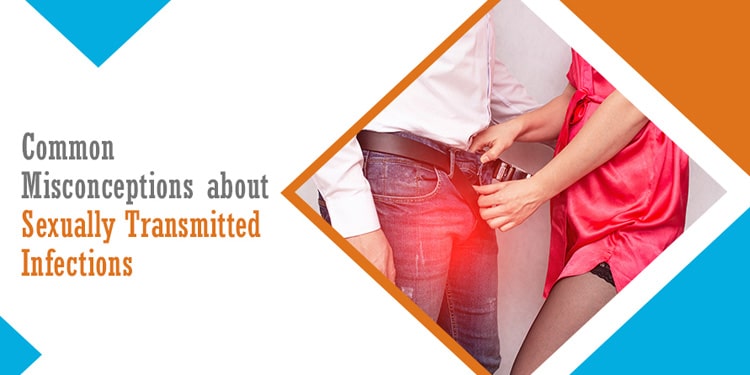- Suite 17, 117A Harley Street London, W1G 6AT
- 020 34751653
- Monday - Friday
9:00 - 18:00 - Saturday - Sunday
10:00 - 14:00

Proper diagnosis of sexually transmitted diseases and infections are increasing in the United Kingdom with more number of cases almost everyday. Here we have created a list of common STI myths for you so that you and your partner can keep yourself protected.
False. People who like to have sex with several partners have created this kind of myth. Though it is truethat you increase the chance of getting an STI if you have more than one partner, it is quite possible to get an STI from a single sexual intercourse.
False. You do not always know if you or your sex partner has an infection. Though some cases show obvious symptoms like lumps, abnormal discharge or rashes, these infections will not show any signs at all. Both syphilis and chlamydia may remain in your body for several months or years without showing their symptoms. So, if you are engaged with a new partner or it has been more than a year since your last STI test, make sure you get yourself tested soon.
False. Chlamydia is said to be a sexually transmitted infection that generally do not show anysymptoms and it is extremely dangerous. The infection may grow in your reproductive system, especially for women, and lead to infertility as well as pelvic inflammatory disease (PID).
False. Every time you decide to change your sex partner, it is extremely important to discuss about your sexual health history with the new partner. It is certainly a good idea that both of you get tested at the start of the relationship so that neither of you carry any past infections with you.
False. Though there are certain STIs that seem to be more prevalent in youngpeople, sexually transmitted diseases do not care at all about your present age. You may get an STI at any age. In fact, STI diagnoses seem to have increased by more than a third in the past decade among people who are in the age group of 50 and 70.
False. The risks are comparatively less than with vaginal or anal sex. There are certain infections that may remain in the throat such as chlamydia and gonorrhea.
False. Though syphilis had first been widely considered sexually transmitted disease, it started to make their way around the bedrooms of Italian and French boudoirs in the 15th century. The latest statistics show there has been an increase of 20% in diagnosing syphilis.
False. Most tests can be performed with urine and blood testing. If you need a swab since you are experiencing certain symptoms during a mild invasive method, but this is certainly not painful. A swab is only a larger version of cotton buds you normally stick in the ears.
False. The positive news is that common STIs such as syphilis and chlamydia can be treated with ease by taking antibiotics, but some of them might be there for your entire life. Although you can manage and treat them, both HIV and herpes will stay in your body. Gonorrhoea is treatable, but recently a new super-gonorrhoea strain known as Neisseria gonorrhoeae, has emerged which seem to be extremely drug resistant.
False. You may get the same STI several times whenever you come in close contact with it during unprotected sex.
False. There are some STIs that start with flu-like symptoms. These include – fever, nausea, fatigue,headache, vomiting, lower back pain, joint pain, abdominal pain and urinary symptoms.
False. There isn’t any shame in taking proper care of your health. Thus, the more you take care of yourself, the better sex you can have with your partner.
Thus, if you have had unprotected sex with a new partner recently, several partners or remain sexually active without being tested for a year, then it is definitely a good idea to visit a sexual health clinic in London and get yourself tested immediately.
Our Sexual Health Clinic is located on Harley Street in the heart of London.
We are only a 5 minutes walk from Regents Park station, 10 minutes from Great Portland Street and 15 minutes from Oxford Circus.